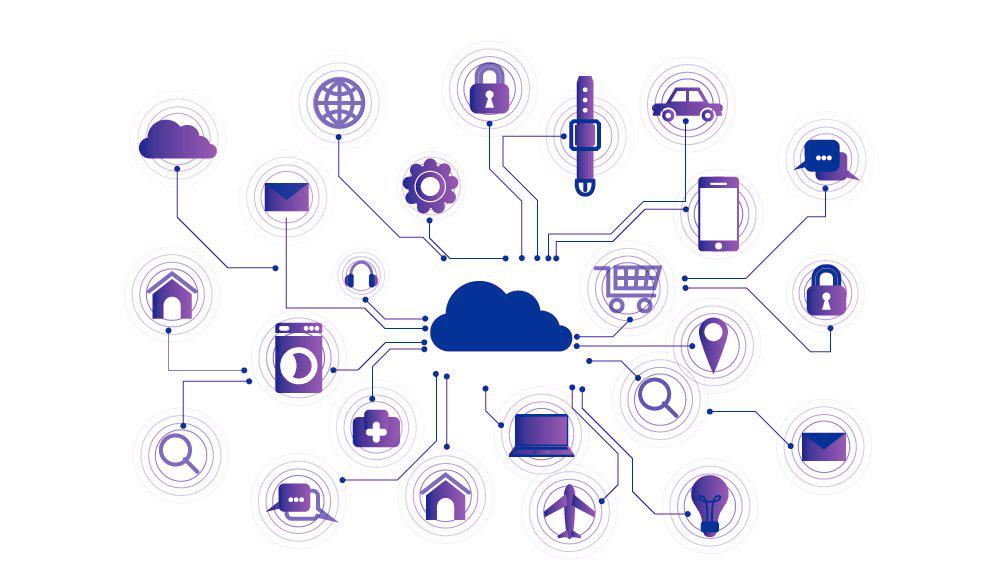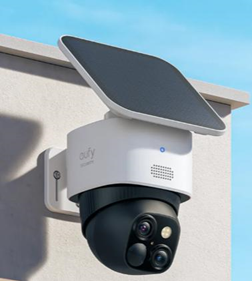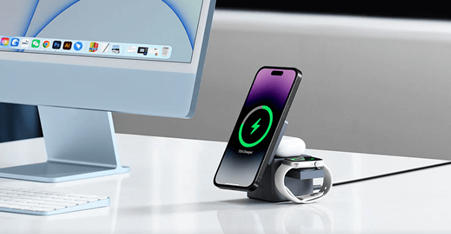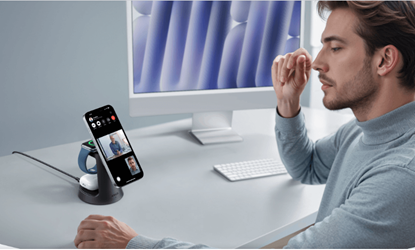A Swedish rail line can now collect fares by scanning its customers for embedded biometric chips. The primary benefit is the elimination of a physical ticket—plus it’s harder to lose. It sounds futuristic, but my dogs have been sporting embedded chips for over a decade.
If you think about it, physical tickets are kind of silly. They are a surrogate for the person. The practice of scanning a ticket instead of a person was likely established when there just weren’t many viable alternatives. Technology now offers a more direct approach.
There are lots of examples in which companies attempt to track their customers—be it frequent customer cards, credit card numbers, tickets or other surrogates. But ultimately, wouldn’t it be better to just track the actual human customer? Not everyone is willing to embed chips in their skin, but there are other options.
Disney MagicBands
One of the better examples of equipping customers with trackable technology comes from the Disney theme parks. Disney’s MagicBands, introduced in 2013, are RFID bracelets provided to park visitors. Customers wear them because the bands offer several benefits, including shorter lines and documented park history. And they eliminate the need to carry park tickets, hotel room keys and credit cards.
Because RFID can be used for location tracking, the bands contribute to magical experiences. For example, you can order food and then like magic, it is delivered to wherever you chose to sit.
Disney likes the MagicBands because they generate data about customer visits—where they go, how much they spend and how long they wait in lines. The bands also generate incremental revenue opportunities. For example, park photographers can use them to identify faces and sell more photos.
Carnival's Ocean Medallion wearable
The customer-as-IoT journey is just beginning. Some of the designers behind Disney’s MagicBands are now leading the next big evolution at Carnival Cruise Lines. This November, the Carnival Regal Princess will be the first ship to offer “Ocean Medallion Class” that utilizes the Ocean Medallion wearable. It’s the first ship in an aggressive vision that could extend across the entire fleet.

Carnival holds more than 40 percent of global cruise market share. In addition to its own flagship brand, the company has nine other cruise lines, including Princess and Holland America. The Ocean Medallion program will certainly change cruising and has the potential to cause waves across the entire hospitality industry.
The Ocean Medallion program has three major components: the Ocean Medallion, a ship outfitted with sensors and displays, and the OCEAN application. The medallion is a small waterproof wearable that passengers receive before their trip even begins. It can be worn as a pendant, a pin or a bracelet. The medallion communicates with newly installed receivers throughout the ship. OCEAN, or One Cruise Experience Access Network, is the backend application that powers the Ocean Medallion experience.
Each medallion is outfitted with Bluetooth and NFC radios. Carnival is installing about 16 sensors for every passenger to ensure complete coverage throughout its ships. On the Carnival Regal Princess, that meant about 7,000 sensors and 75 miles of new cable. The entire retrofit includes new access points, hundreds of public wall-mounted touchscreens and new Bluetooth-enabled door-locks.
The Ocean Medallion program has objectives to increase revenue and decrease costs. On the revenue side, it creates additional and frictionless revenue opportunities. On the cost side, it allows staff to work more efficiently. Most significantly, though, the program is designed to create personalized experiences intended to increase satisfaction and drive recurring business.
Cruise ships are sometimes described as giant floating hotels, but that’s a dramatic oversimplification. In addition to the fact that they move, there’s some major operational differences. For example, the check-in process is much more intense on ships, since thousands of guests check in within just a few hours. The medallion simplifies this immensely. Because guests receive their medallion before their cruise, check-in is just a matter of boarding the ship and unlocking a stateroom.
Cruise ships have been steadily growing in size, which means more and more diverse programs and activities. The menu of choices is becoming overwhelming. Carnival intends to use OCEAN to match its customers to the right activities. OCEAN notes what you do, where you eat, what you buy and what activities are of interest. It continuously updates its understanding of each passenger to improve its recommendations. It is conceptually similar to the recommendation engines implemented by Netflix and Amazon.
Passengers interact with OCEAN via touchscreens throughout the ship. No need to log in because it knows when you are in front of it. These screens provide access to all kinds of up-to-date, personalized information, including reservations and the location of those traveling with you.
The Ocean Medallion program is the cutting edge of wearable technology. Carnival and its partners Nytec and Level 11 created new systems and hardware to make it all work.
In subsequent posts, I will profile some of these stories—such as why they went with Bluetooth and NFC in the wearable, how they turned Bluetooth upside down, and some of the new types of services that become possible when so much customer information is known.
Many of these concepts will eventually appear in traditional hotels. Today, most frequent guest programs offer general incentives, but they do little to personalize the experience. For example, Marriott hotels allow me to enter my Netflix credentials for in-room entertainment. Their systems erase it upon check-out, but why not automatically load it on check-in?
Tracking customers will change many industries, and it won’t all happen through wearables. Video recognition and analytics use cases are also emerging. JetBlue has begun using facial recognition in lieu of boarding passes.
What’s particularly noteworthy about the Ocean Medallion program is it is poised to revolutionize an old, disconnected industry. The IoT opportunity to transform industries knows few restrictions, and it will change products and services all around us.
Join the Network World communities on Facebook and LinkedIn to comment on topics that are top of mind.








